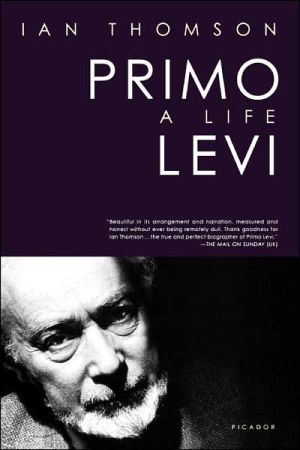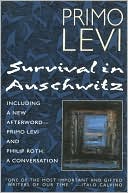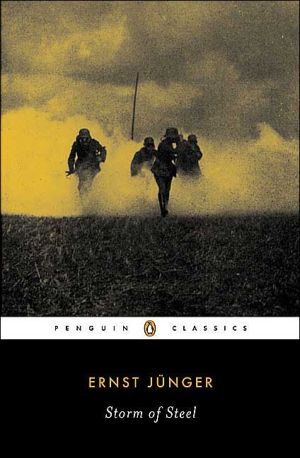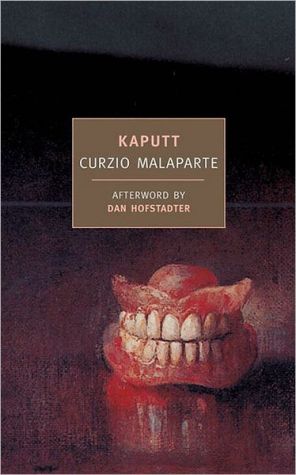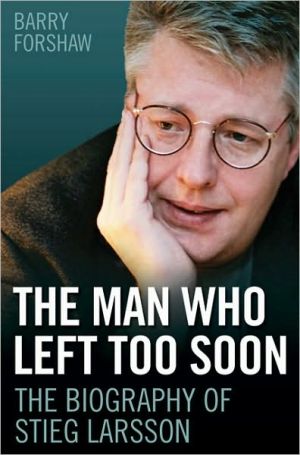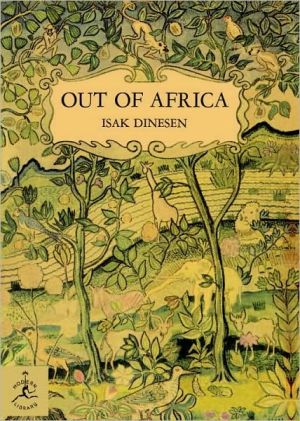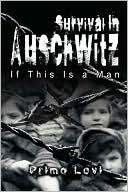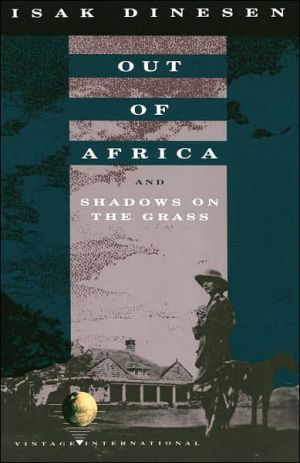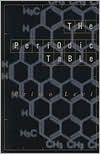Primo Levi
Primo Levi wrote books that have been called "the essential works of humankind," including Survival in Auschwitz and The Periodic Table. Yet he lived an unremarkable existence, remaining to his death in the house in which he'd been born; managing a paint and varnish factory for thirty years; and tending his invalid mother to the end. Now, in a matchless account, Ian Thomson unravels the strands of an influential life.
Search in google:
Primo Levi wrote books that have been called "the essential works of humankind," including Survival in Auschwitz and The Periodic Table. Yet he lived an unremarkable existence, remaining to his death in the house in which he'd been born; managing a paint and varnish factory for thirty years; and tending his invalid mother to the end. Now, in a matchless account, Ian Thomson unravels the strands of an influential life. Publishers Weekly Thomson's biography of Primo Levi comes a little over a year after Carole Angier's Levi biography, The Double Bond. The merits of the two are sharply distinct from each other. Where Angier considered broader questions of culture and identity, Thomson is brisk and novelistic. Thomson had extensive, exclusive access to Levi papers and family members, where Angier had almost none. For that reason alone, any Leviphile will derive considerable pleasure from Thomson's account. The fast-paced narrative sometimes results in frustratingly concise characterizations ("Chemistry was to be a powerful magnet for the inadequate teenager looking for a focus to his life"), but that may well be the price for a book that follows Levi's comings and goings so closely. Thomson, who has translated the novels of Sicilian crime writer Leonardo Sciascia into English and wrote Bonjour Blanc, is particularly attentive to the often glossed-over later years of the author's life, tracing the twin courses of his publishing career and his deepening struggle with depression. Since Levi's tragic suicide in 1987, the search for the true man behind the mythic Holocaust survivor has only intensified; Levi biographers always find they must compete not only with each other but with their subject, whose immortal memoirs will inevitably have the final say. In the end, Thomson's contribution may concentrate more on the trees than the forest, but its smoothly assembled accumulation of details renders an invaluable service to the Levi legacy. (Nov.) Copyright 2003 Reed Business Information.
\ From the Publisher"Beautiful in its arrangement and narration, measured and honest without ever being remotely dull. Thank goodness for Ian Thomson... the true and perfect biographer of Primo Levi."—Daily Mail (UK)"A modest but imposing work."—The New York Times Book Review"Thomson has surely written one of the best literary biographies of the year . . . Shrewdly, he has provided what any lover of Levi needs close by: not a critical interpretation or reinterpretation, but a reader's companion . . . Thomson writes with an exemplary mastery of detail and rare narrative verve . . . Superb."—The Observer"Intelligent, low-key, well-written, and mercifully innocent of big claims. It brilliantly captures what is remarkable about its subject: the life and emotional economy of a man who was 'ordinary'...An important biography."—London Review of Books"Ian Thomson has done a prodigious amount of research and presents a considerable amount of fresh biographical material . . . Highly persuasive."—The New York Review of Books\ \ \ \ \ Publishers WeeklyThomson's biography of Primo Levi comes a little over a year after Carole Angier's Levi biography, The Double Bond. The merits of the two are sharply distinct from each other. Where Angier considered broader questions of culture and identity, Thomson is brisk and novelistic. Thomson had extensive, exclusive access to Levi papers and family members, where Angier had almost none. For that reason alone, any Leviphile will derive considerable pleasure from Thomson's account. The fast-paced narrative sometimes results in frustratingly concise characterizations ("Chemistry was to be a powerful magnet for the inadequate teenager looking for a focus to his life"), but that may well be the price for a book that follows Levi's comings and goings so closely. Thomson, who has translated the novels of Sicilian crime writer Leonardo Sciascia into English and wrote Bonjour Blanc, is particularly attentive to the often glossed-over later years of the author's life, tracing the twin courses of his publishing career and his deepening struggle with depression. Since Levi's tragic suicide in 1987, the search for the true man behind the mythic Holocaust survivor has only intensified; Levi biographers always find they must compete not only with each other but with their subject, whose immortal memoirs will inevitably have the final say. In the end, Thomson's contribution may concentrate more on the trees than the forest, but its smoothly assembled accumulation of details renders an invaluable service to the Levi legacy. (Nov.) Copyright 2003 Reed Business Information.\ \ \ Library JournalThis U.S. edition of a 2002 U.K. biography is an exhaustive examination of the great Turinese Holocaust memoirist Levi (Survival in Auschwitz; The Periodic Table), whose suicide in 1987 at the age of 67 has subsequently darkened the essentially optimistic qualities of his oeuvre. Thomson interviewed scores of Levi's contemporaries going back to his earliest primary-school years, and his status as a top Italian-to-English literary translator is verified in the remarkably deep bibliography he has put to service in telling Levi's story. Thomson's biography is interpretively sensitive, historically shrewd, and certainly comprehensive. In the end, Levi emerges as a man who knew virtually everyone of consequence in the postwar Italian high-culture scene but existed in partial emotional isolation as a professional chemist, reluctant businessman, not quite A-list literati, and devoted husband and father. Recommended for collections that value Holocaust literature or the 20th-century European canon.-Scott H. Silverman, Bryn Mawr Coll., PA Copyright 2003 Reed Business Information.\ \ \ \ \ Kirkus ReviewsA rich life of the enormously gifted but deeply troubled Italian Jewish writer. Primo Levi’s suicide on April 11, 1987, at the age of 67, angered some of his fellow Holocaust survivors, writes English journalist Thomson (Bonjour Blanc, not reviewed, etc.), who were "incensed at the apparent uselessness of the act." Others, however, well understood his decision to end his life, seeing in it one of the few acts of unbridled freedom in a carefully controlled and luckless life. Levi grew up in a comfortable Turin household where emotions were not easily expressed; "in later years," Thomson writes, "Levi told a journalist that he could not remember ‘a single kiss or caress’ from his mother." Whether or not that was true—and Thomson doubts that it is—Levi grew up to be a morose young man whose hopes of becoming a writer were dashed by the indifference of publishers (among the editors who rejected him were the writers Cesare Pavese and Natalia Ginzburg, the latter of whom later regretted her decision) and of a public that wanted to forget the historical realities that underlay Levi’s extraordinary memoirs. Those were, of course, the mass deportation of Italian Jews, along with Jews from everywhere in Europe, to Auschwitz and other death camps, the setting for Levi’s If This Is a Man and the allegorical Periodic Table, among others. These works are now part of the canon of Holocaust literature, even if Levi was uncomfortable as a spokesman and determined not to serve as "a symbolic rallying point for other people’s suffering." In this sympathetic consideration of Levi’s life, Thomson well fulfills his pledge, at the outset, to write a biography "not found in his books"—no easytask, given that much of Levi’s output is an extended autobiography, but aided by Thomson’s diligence in seeking out and interviewing those who knew the author. Readers may have trouble choosing between this and Carole Angier’s The Double Bond (2002). Each has considerable merit, and admirers of Levi will want to know both. Agent: Pat Kavanagh\ \
